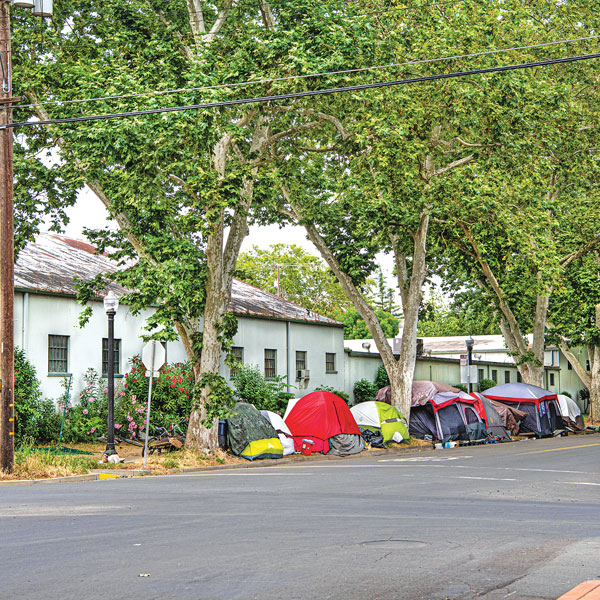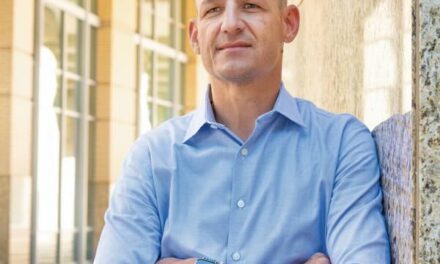Darrell Steinberg is a timid politician, and timid people should never be mayor. Timidity was the hallmark of his political career. It sustained him for three decades before it finally, inevitably ruined him.
The pattern began in 1992. He entered politics as a City Council candidate to replace Kim Mueller when she moved to the federal judiciary. Steinberg won easily. He secured valuable support months before Election Day. He campaigned against a weak field populated by unknowns and has-beens. The race was over before it started.

Conflict avoidance became the Steinberg Method, and it worked. He evaluated risks, calculated odds, moved only when victory seemed certain. Threats were identified, reduced and mitigated. The pattern carried him from City Council to the state Assembly and Senate and back to City Hall as mayor.
Potential fights were recognized early, dispatched in negotiations with Democratic Party leaders and labor union bosses. Endorsements were granted, campaign dollars promised. Only then would Steinberg step into the open, after the outcome was fixed.
The strategy of pre-empting challenges and ducking fights began to crack three years ago. Community unrest after George Floyd’s murder ignited economically devastating riots. Dozens of businesses were smashed and looted.
The timid mayor was not prepared. Broken shop windows on J Street didn’t negotiate.
The city was desperate for leadership. Steinberg froze, paralyzed by timidness. He sympathized with aggrieved protesters. He felt sorry for victimized merchants. He didn’t want to offend anybody. When he finally sought help from Gov. Gavin Newsom, it was too late.
From that moment, the mayor’s political trajectory tanked. He dreamed of being appointed State Attorney General, but discussions with the governor’s office went nowhere. His fallback position—an appellate court appointment—evaporated when he made remarks about holding out for something better.
The sudden inability to cut deals for himself left Steinberg foundering, breaking apart on the rocks of political irrelevance.
He decided he hated being mayor. Then, realizing there was no next office to provide the power he craved, he reversed and considered running for a third term. But this time he encountered a new, unfamiliar challenge. He found a fight he couldn’t fix.
In seeking a third term, Steinberg would not campaign against upstarts, nobodies and has-beens. He would face experienced politicians who knew how to punch.
Younger elected officials such as Assemblymember Kevin McCarty and former state Senator Dr. Richard Pan were interested in becoming mayor. They refused to stand down and clear the field for Steinberg. They wouldn’t negotiate.
Their presence meant a competitive race and possible—let’s call it probable—defeat. Which meant exposure as a loser at age 65. For a timid politician, the choice was obvious. Best to spend time with the family.
Timidity ruined Steinberg’s chances for a mayoral legacy. He arrived in office amid a crisis. Homelessness spread across the city, from hobo camps near the American River to X Street and Land Park and Alhambra Boulevard.
Steinberg saw opportunity in the homeless crisis. He campaigned in 2016 as the only candidate qualified to manage and resolve the problem. He promised to deploy his legislative experience and state Capitol connections to secure money for vagrant housing and mental health programs. Voters believed him.
Sacramento had about 2,700 homeless people when Steinberg became mayor. Today the number probably exceeds 10,000. The scourge of homelessness draws global attention to the city. It’s a shameful portrait owned by Steinberg.
The mayor likes to recite statistics about people housed under his guidance. The numbers are anemic. His grand plan involved building modest neighborhood facilities in eight City Council districts. The grand plan failed. The crisis rages.
Other cities tackle homelessness with comprehensive, full-service campuses and coordinated, accountable programs. Steinberg plays it small and timid. Minimal accountability, one bed at a time.
Once in the past seven years, Steinberg overcame his timid instincts and tried something big. He resuscitated Kevin Johnson’s failed proposal to junk the diversified City Council system and create a strong mayor.
Voters feared Johnson was power-hungry. With Steinberg, they saw the opposite, a timid politician who couldn’t handle power. They said no.
R.E. Graswich can be reached at regraswich@icloud.com. Follow us on Facebook, Twitter and Instagram: @insidesacramento.















